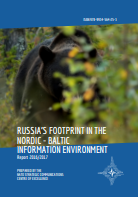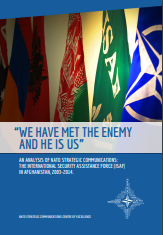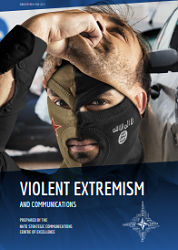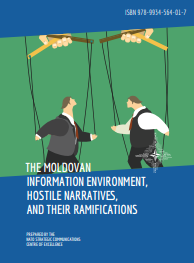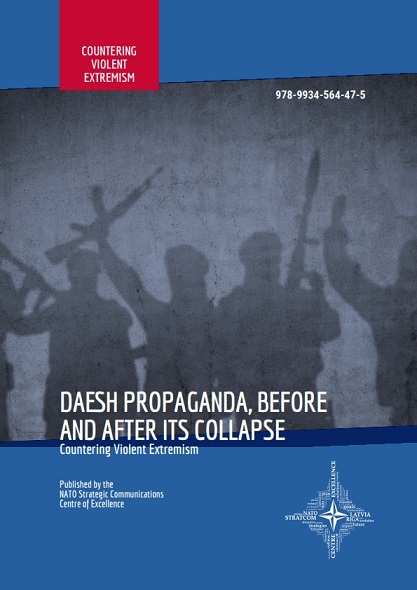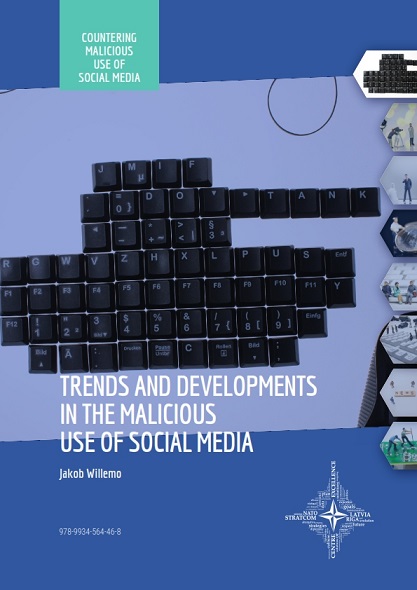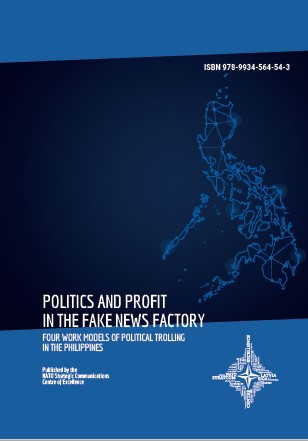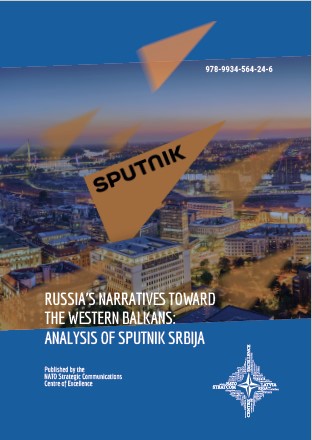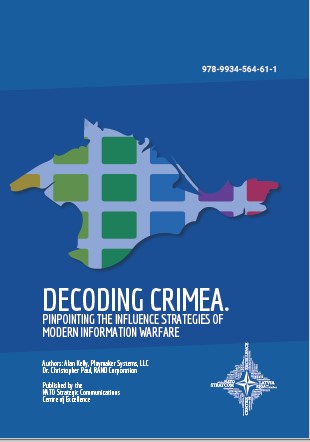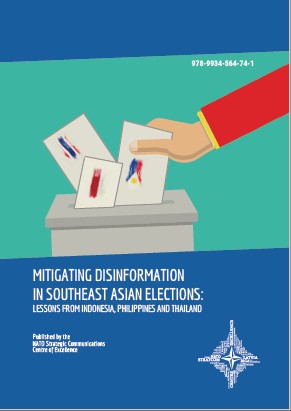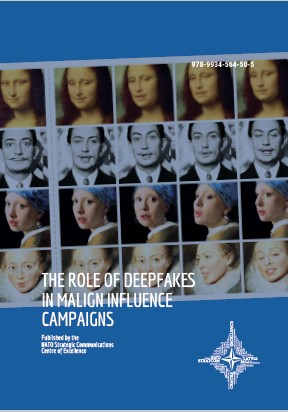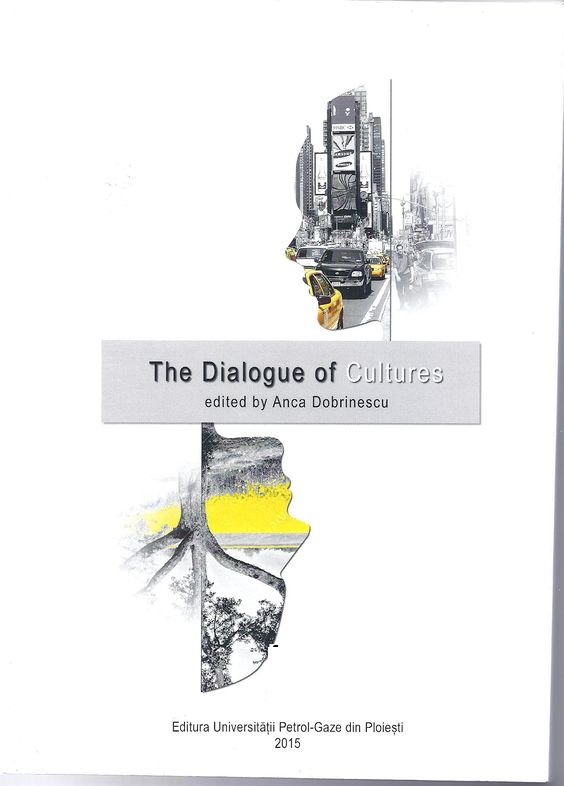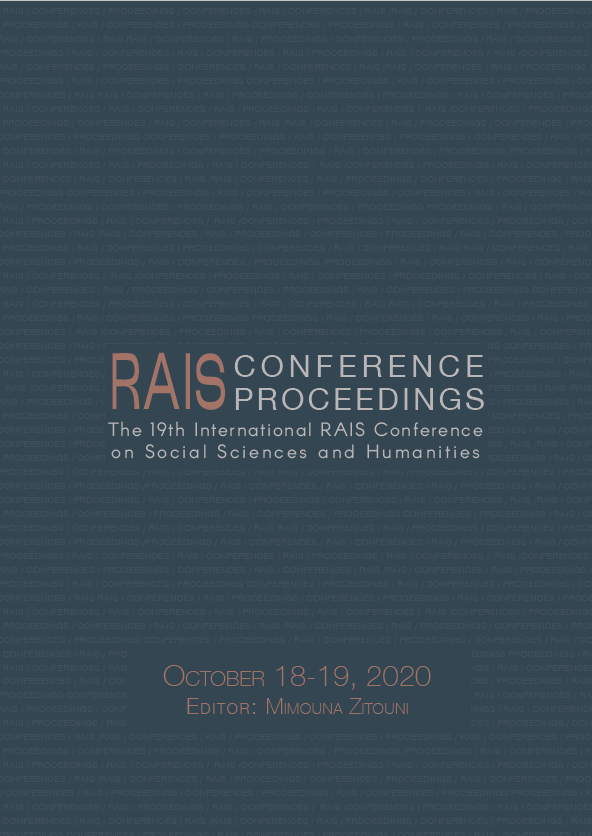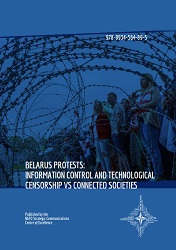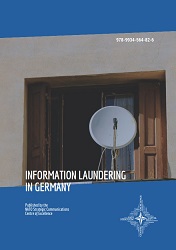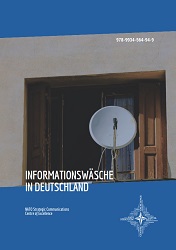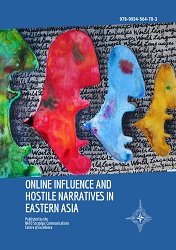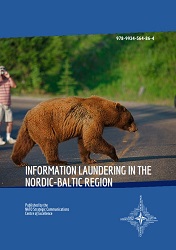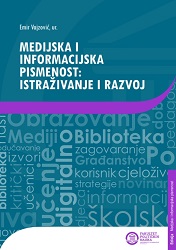Author(s): / Language(s): English
This study describes the current information environment of Moldova. The main focus is on how societal vulnerabilities are exploited by political actors who are following policies promoted by the Kremlin. The mechanisms linking societal vulnerabilities and people’s behaviour are described here in order to better understand the Moldovan information environment, especially the Russian influence on Moldovan politics. Compared to a traditional target audience analysis, this study highlights the importance of the structure of media environment, which promotes hostile Kremlin narratives in Moldova (see picture page 5). This study assumes that societal problems are not discussed in a vacuum. Moldovans’ perception of what is going on around them and the actions they take in response are shaped by the structure of and key actors in the media environment. As a result, only some topics are selected for public consumption. The chapters that follow describe the vulnerabilities in today’s Moldovan society, the divisive narratives promoted by the Kremlin and its local affiliates, local media ownership and control, and the most influential opinion-leaders in Moldova. Conclusions and recommendations are given at the end of each section. People living in Moldova today worry about their children’s future, poverty, unemployment, prices, corruption, and the possibility of war. This report highlights the importance of corruption, weak state structures, the dysfunctional political system, and the regions of Transnistria and Gagauzia as the major vulnerabilities currently faced by Moldovan society. All of these issues are closely linked to both poverty and the lack of security many people feel in the unstable political environment. These vulnerabilities are effectively leveraged to foster mistrust and polarization. After analysing the situation, we cluster Kremlin promoted messages, speeches, videos, demonstrations, and other acts. We consider these clusters as four identifiable hostile narratives that serve to create divisions in an already fragmented society. We have named them ‘Russkii Mir and Soviet Nostalgia’, ‘Federalization Will Ensure Equality’, ‘The European Union is Bad, Russia’s Customs Union is What You Need’, and ‘Romania and NATO are a Threat to Peace’. Each of these narratives targets feelings and emotions—the sense of belonging, the sense of selfdetermination, a sense of economic security, and a sense of physical security. Each narrative touches upon particular Moldovan vulnerabilities, but the tactics behind them can be recognised in other, similar narratives promoted by Vladimir Putin’s Kremlin in other countries along the Russian border. The ideas in these hostile narratives overlap, sharing many of the same features. For instance, ideological conservatism supports both cultural propagation and is opposed to economic ties with the European Union. These narratives can also be contradictory, such as the idea of Russkii Mir, which attempts to link the Moldovans more closely to their former Russian rulers, while federalization strategy claims to promote self-determination for the ethnic Moldovan majority. Therefore, hostile narratives are not meant as idealized truth that the audience should swallow whole. Instead, individuals pick and choose the story elements that make sense to them, like choosing dishes from a buffet. What is crucial is that people accept a portion of the misleading information, which itself is enough to deepen the wedges between the various factions of Moldovan society. Post-Soviet narratives are a mix of residual memories, political failures, and regional conflicts. Ideological narratives affect minds and public behaviour via emotions and iconic images. The ‘Russkii Mir and Soviet Nostalgia’ narrative inspires unity between Moldovans and Russia on an emotional, even spiritual, level. The idea of Russkii Mir,’ or ‘the Russian world’, is an ideology built on the assumption that those who speak Russian think and act like the subset of Russians currently in power. In Moldova, this manifests itself through emphasizing Russian Orthodox religion, remembering and cherishing the sacrifices made during the Great Patriotic War, and clearly distinguishing between Moldova and Romania. These are attempts to create positive feelings about influence from the East and sharing the conservative Russian mental space. The ‘Federalization Will Ensure Equality’ narrative comprises acts and messages that stress the equality of different ethnic groups living in Moldova. Here Russia wants to take on the role of an alternative to the Moldovan titular group. The portrayal of Russians as the most important linguistic minority can be challenged. Not only is the size of Ukrainian population bigger, but Russians are closely followed by other groups in number. Politically, federalization might create veto-rights for the administrative areas of Transnistria and Gagauzia, which themselves are closely linked with Russia due to various historical circumstances. The narrative ‘The European Union is Bad, Russia’s Customs Union is What You Need’ seems to be about economics, but actually the arguments used are often based on ideological conservatism and used to create fear among Moldovans. The related Kremlin narrative, ‘Romania and NATO are a Threat to Peace’, leverages people’s sense of insecurity. Echoing messages from the Kremlin, some political leaders are claiming that Western expansionism is underway, or that NATO and Romania have ambitions towards the East. The narrative has produced results: a large number of Moldovans favour both Vladimir Putin and political neutrality, which suggests that these audiences do not see the risks the current Russian regime poses to the region. These narratives are most powerfully communicated through various forms of media. Without a mechanism for the transmission of these narratives, they would have a limited audience and those sending messages would be unable to bring about changes in the behaviour of the people they seek to influence. For the most part, the Moldovan people are only exposed to that information, which local powerbrokers or the Kremlin-controlled media want them to be aware of. At the moment Moldova has too many media outlets for them all to remain economically viable in the small Moldovan economy. This reduces the quality of the news and creates an incentive for affluent actors to promote their own agendas. A handful of individuals in Moldova and the Kremlin are effectively dominating the news landscape. Much of the control lies in the hands of politicians or oligarchs such as Vladimir Plahotniuc, who has consolidated his business and political power structure, leveraging also his media assets. Plahotniuc plays a leading role in the pro-Western Democratic Party of Moldova, while his television channels run programming produced by Kremlin-controlled media. Some other influential politicians and businessmen active in the media include Chiril Luchinschi, Vlad Filat, Vadim Ciubara, Victor Țopa, Dan Lozovan, Dumitru Țîra, and Ilan Shor. This report includes charts showing who controls the Moldovan media (see picture page 48) and which parties are affiliated with pro-Kremlin and Pro-Western media outlets. (see picture page 47). The media is a pipeline that carries content. Journalists and researchers, who influence the national agenda, create the content. They are influential because audiences see and hear them actively analysing and discussing pressing issues. According to our study, some of the most influential opinion-makers were Corneliu Ciurea, Serghei Ostaf, Veaceslav Ionita, Victor Gurau, and Alexandru Cauia, who happen to be especially popular on platforms connected with Plahotniuc. Because the situation in Moldova shows every indication of remaining challenging, there will be a constant stream of opportunities to negatively affect the fragile development of proWestern narratives. Hostile narratives can be fine-tuned and kept alive with minimal effort. Adversarial forces needn’t actively worsen the current situation, as conditions are already bad. In the current political climate, Western values are under attack. In Moldova, neither the public sector, nor the public at large are clear about where they want to be heading. While the Kremlin is clearly leveraging the vulnerabilities of Moldova, the population itself is divided along several lines. Self-interest, greed, and lust for power are often veiled in political rhetoric, which makes evaluating the information environment challenging. Large segments of Moldovan society are inclined to agree with messaging originating from the Kremlin, while the pro-Western segments of the population are divided on a number of issues. The current Moldovan understanding of Western or European values is often distorted either by adversaries, or by noncredible proponents of alternative messages. There are many flag carriers for European values in Moldova, but many others exploit fears about Russia for their own benefit. In order for the voices representing truth and justice to be heard in the Moldovan information environment, the country and its people will continue to need support from free and open societies. Adversaries can affect decision making, first by distorting the quality of information, second by controlling access to information, and third by influencing people’s perception and understanding of the information they do come into contact with. There are several ways Moldova and its partners can help to protect Moldovan society along these lines. First, there are various ways to improve information quality in Moldova. Western values can be promoted using current media structures. The political agenda of each media outlet is partly moulded by a circumscribed number of opinion leaders, many of whom are discussed in this study. Offering good journalistic content to the existing popular channels is a way to improve understanding among audiences. Adding new channels is not effective in an already saturated market. Radio Free Europe/Radio Liberty Moldova has managed to include both Romanian and Russian language programming on Moldova’s public TV and radio channels. Second, access to information might require marketing, more attractive programming as well as technical solutions. Large segments of the Moldovan population have limited access to high-quality information. They are barely in the Moldovan media space but voluntarily rely on Kremlin news sources. It is very difficult to reach these people if they are stuck in their media habits and not used to searching for news from different sources. To find a way to break through to individuals caught in this type of Kremlin information bubble, we should further analyse what kind of content, e.g. entertaining or journalistic, would encourage people to change their media habits. In Transnistria and Gagauzia there are even fewer opportunities to get Moldovan or Western content due to local broadcasting decisions, so reaching them requires other technical solutions. Third, protecting perceptions and understanding is the most difficult issue to solve. Proposals for various types of co-operation projects that would bring Moldova into closer contact with the rest of Europe and provide work in Transnistria and Gagauzia are especially relevant, as they are more isolated from the West. The situation in these regions is only one symptom of the problem. As long as there is no shared national vision about present realities and the future goals, all solutions remain partial. The Moldovan authorities and citizens must bear the brunt of the responsibility for creating new opportunities and developing cohesion among the inhabitants of the country. Western support for the Moldovan people, especially for education, rule of law, functioning state structures, and quality journalism will bear fruit in the long run. To summarize the policy recommendations, we are suggesting improving quality journalism leveraging the current media structures, targeting marketing and projects aimed at bursting proKremlin information bubbles, and continued co-operation in supporting the Moldovan response to improve state vulnerabilities.
More...


